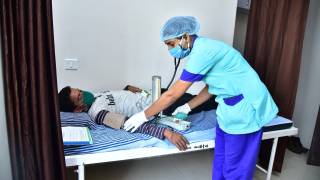Pregnant Women May Pass COVID-19 Antibody Protection to Infants Before Delivery

A study published by JAMA Pediatrics demonstrates maternally derived antibodies’ potential to provide neonatal protection from SARS-CoV-2 infection.
This study’s findings indicate an ‘efficient transplacental transfer of SARS-CoV-2 IgG antibodies supports the potential for maternally derived antibodies to provide neonatal protection from SARS-CoV-2 infection.’
These researchers stated on January 29, 2021, ‘Our findings align with current evidence that suggests that although placental and neonatal SARS-CoV-2 transmission may occur, such events are not common.’
‘The majority of women in our study at the Pennsylvania Hospital in Philadelphia, PA., who were seropositive were asymptomatic, with uncertain timing of viral exposure.’
‘Among the subset of women in our study whose onset of infection could be estimated by symptoms prompting viral NP-PCR testing, all cord sera were seropositive if the maternal NP-PCR testing was 17 days or more before delivery.’
‘Our findings align with studies of vaccine-elicited antibodies to pertussis, rubella, hepatitis B, and influenza, where cord sera / maternal sera transfer ratios ranging from 0.8 to 1.7 were observed.’
However, this study did not conclude that the SARS-CoV-2 betacoronavirus is never transmitted to the fetus before birth.
In this cohort study, SARS-CoV-2 IgG antibodies were transferred across the placenta in 72 of 83 seropositive pregnant women, and cord blood IgG concentrations were directly associated with maternal antibody concentrations. In contrast, IgM antibodies were not detected in any cord blood sera.
Transfer ratios were associated with time elapsed from maternal infection to delivery and not associated with the maternal infection severity.
The study cohort consisted of 1,714 parturient women, with a median age of 32 years, of whom (26.3%) identified as Black/non-Hispanic, (51.3%) as White/non-Hispanic, (11.8%) as Hispanic, (7.3%) as Asian, and (3.3%) as other race/ethnicity.
Among 1,471 mothers / newborn dyads for which matched sera were available, SARS-CoV-2 IgG and/or IgM antibodies were detected in 83 (6%; 95% CI, 5%-7%) at the time of delivery, and IgG was detected in cord blood from 72 of 83 newborns (87%; 95% CI, 78%-93%).
IgM was not detected in any cord blood specimen, and antibodies were not detected in any infant born to a seronegative mother.
Eleven infants born to seropositive mothers were seronegative: 5 of 11 (45%) were born to mothers with IgM antibody only, and 6 of 11 (55%) were born to mothers with significantly lower IgG concentrations compared with those found among mothers of seropositive infants.
Cord blood IgG concentrations were positively correlated with maternal IgG concentrations (r = 0.886; P < .001).
Placental transfer ratios of more than 1.0 were observed among women with asymptomatic SARS-CoV-2 infections and those with mild, moderate, and severe coronavirus disease 2019. Transfer ratios increased with increasing time between maternal infection and delivery.
This study has several limitations, including single-site sample collection; small numbers of samples from preterm births; reliance on retrospective medical record review that limited our assessment of symptoms of COVID-19 during pregnancy; and a lack of information on post-delivery discharge outcomes.
Because of the limited sample size from preterm births, the researchers could not study the sole association of gestational age with transplacental transfer of antibodies, nor can we rule out that SARS-CoV-2 infection itself at specific times during pregnancy may be associated with the efficiency of transplacental antibody transfer.
Funding for this study was provided in part by a Children’s Hospital of Philadelphia. Dr. Hensley reported consultancy fees from Sanofi Pasteur, Lumen, Novavax, and Merck for work unrelated to this study. Dr. Puopolo confirmed grants from Children’s Hospital of Philadelphia Foerderer Fund for Excellence and US Centers for Disease Control and Prevention during the research. No other disclosures were reported.
PrecisionVaccinations publishes research-based news.
Our Trust Standards: Medical Advisory Committee

























